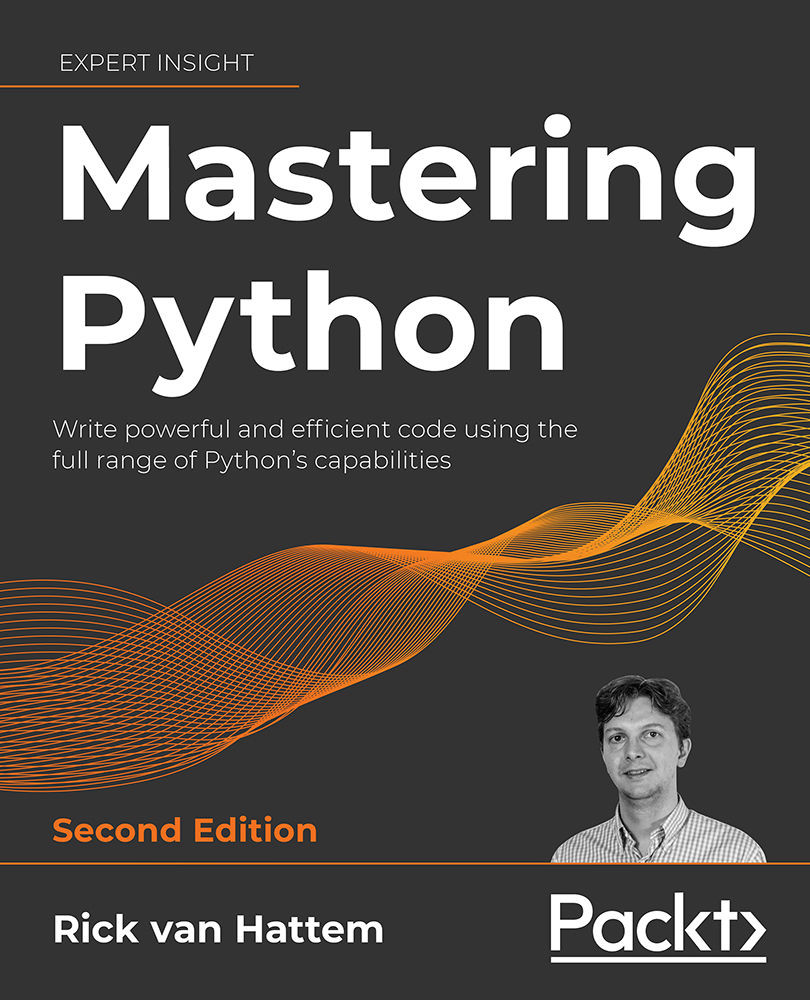This chapter has shown you several of the available Python interpreters and some of the pros and cons. Additionally, you have had a small glimpse of what IPython and Jupyter can offer us. Chapter 15, Scientific Python and Plotting, almost exclusively uses Jupyter Notebooks and demonstrates a few more powerful features, such as plotting integration.
For most generic Python programmers, I would suggest using either bpython or ptpython, since they are really fast and lightweight interpreters to (re-)start that still offer a lot of useful features.
If your focus is more on scientific programming and/or handling large datasets in your shell, then IPython or JupyterLab are probably more useful. These are far more powerful tools, but they come at the cost of having slightly higher start up times and system requirements. I personally use both depending on the use case. When testing a few simple lines of Python and/or verifying the behavior of a small code block, I mostly use...



 Free Chapter
Free Chapter
